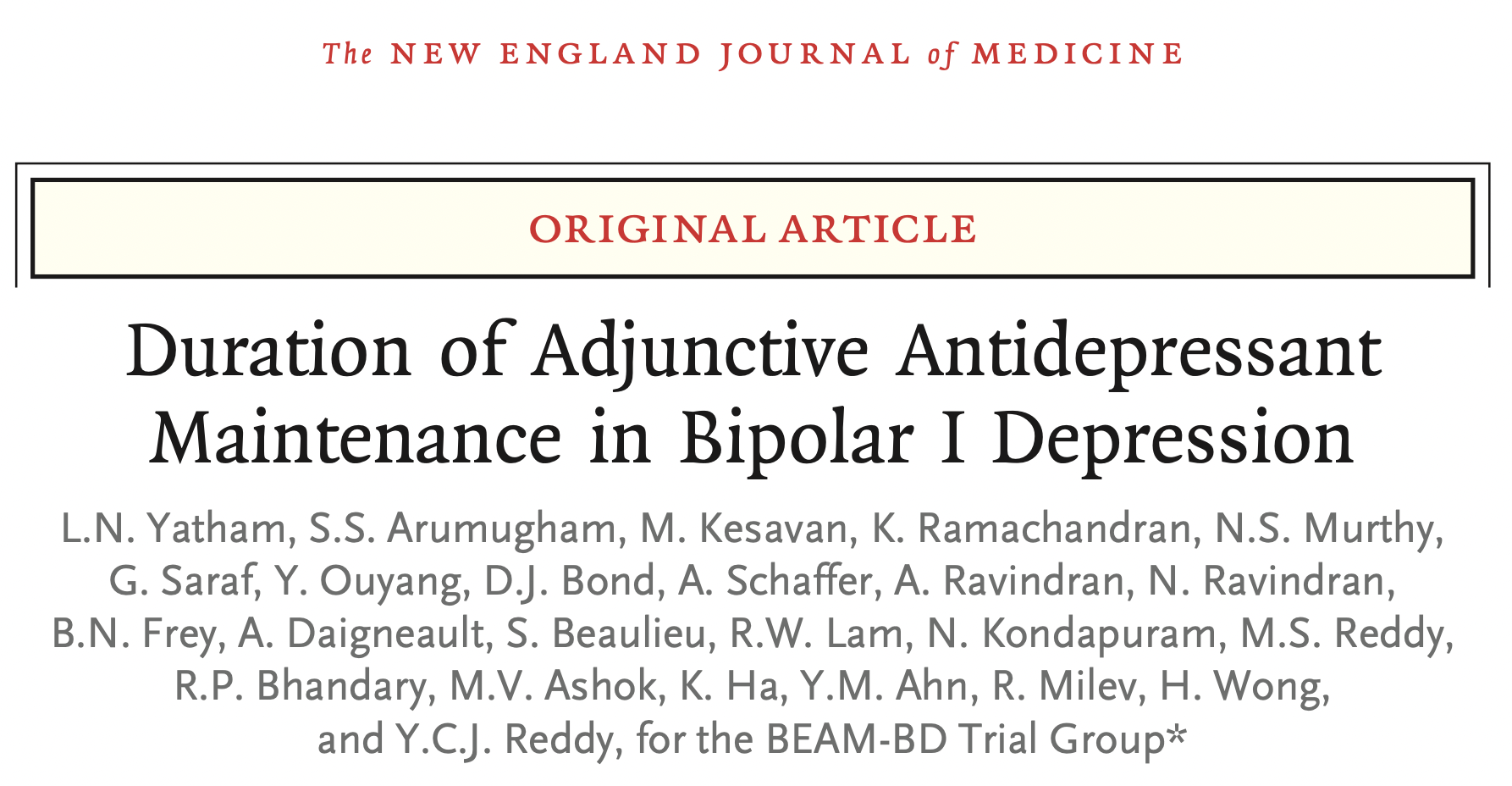An international team of researchers has found that two commonly prescribed antidepressants – escitalopram and bupropion XL – show no benefit for those living with bipolar I disorder when taken for longer than eight weeks as adjunctive treatment.
In bipolar disorder, adjunctive antidepressants are given in addition to a primary mood stabilizer to maximize the overall effectiveness and reduce the risk of manic/hypomanic switch.
The defining clinical feature of bipolar I disorder – mania – is characterized by extreme changes in mood, emotion, energy, and activity levels. Patients often receive lithium, anticonvulsants, or antipsychotic medications as maintenance treatment.
However, depressive episodes occur much more frequently than mania, and suicidality is also much higher during depressive episodes compared to manic episodes. Because of this, antidepressants are often prescribed as an adjunctive therapy in over 50 percent of patients after a depressive episode.
Of those receiving adjunctive antidepressants, 80 percent tend to continue to receive these medicines for six months or longer after remission of their symptoms. Yet there is a lack of research concerning the long-term efficacy and safety of adjunctive antidepressants taken with mood-stabilizing drugs.
In a recently published clinical trial, researchers compared two groups of patients with bipolar I disorder: those who received antidepressant adjunctive treatment following a depressive episode for 52 weeks versus 8 weeks.

During the double-blind study, participants received either escitalopram or bupropion XL as adjunctive antidepressants. After 8 weeks, one group was switched to placebo while the other group continued taking their antidepressants.
The findings show no significant benefit to the 52-week regimen with respect to the occurrence of any mood episode.
 “Our study is among the first to test the long-term efficacy and safety of antidepressants as adjunctive treatment for bipolar I disorder,” said Dr. Benicio Frey, study co-author and academic head of the Mood Disorders Program at St. Joseph’s Healthcare Hamilton.
“Our study is among the first to test the long-term efficacy and safety of antidepressants as adjunctive treatment for bipolar I disorder,” said Dr. Benicio Frey, study co-author and academic head of the Mood Disorders Program at St. Joseph’s Healthcare Hamilton.
“The findings highlight the elevated risk of mood episodes in bipolar disorder, with important implications for clinicians and researchers. Clinicians need to be informed that, on average, long-term use of antidepressants may not provide the desired protection against mood episodes, so patients need to be monitored very closely and other treatment options need to be considered. For researchers, future studies should try to determine the profile of individuals with bipolar disorder that may be more likely to benefit from long-term use of adjunctive antidepressants and which antidepressants that should be avoided.”
The study findings were recently published in the New England Journal of Medicine.
Funding was provided in part by the Canadian Institutes of Health Research.